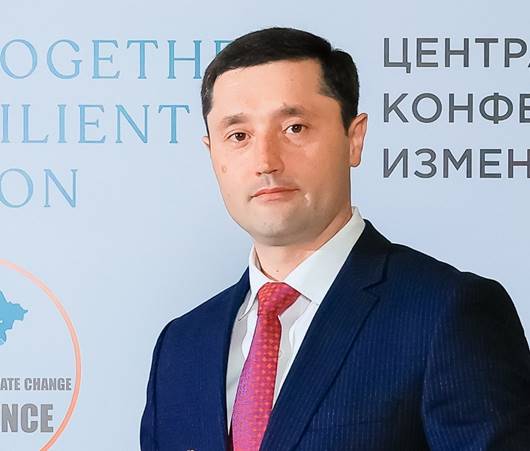Zafar Makhmudov, Executive Director, Regional Environmental Centre for Central Asia (CAREC)
Ashgabat, Turkmenistan | 13–15 May 2025

Climate change is no longer a distant threat for Central Asia—it is a daily reality. The region is warming twice as fast as the global average, making it one of the most vulnerable in the world. According to the World Meteorological Organization, 2024 was the hottest year worldwide and the second hottest one in Asia. The consequences are clear: prolonged droughts, shrinking glaciers, unpredictable floods, and accelerating desertification.
Against this urgent backdrop, the Central Asia Climate Change Conference 2025 (CACCC-2025) will take place in Ashgabat from 13 to 15 May. This year, the focus is climate finance—how to mobilize it, manage it effectively, and ensure it delivers real impact for the people and ecosystems of the region.
Climate finance is more relevant than ever and requires coordinated action from us. It requires access to sustainable sources of finance based on trust, transparency, and partnership.
Climate Finance: it's Core
Countries in the region have made significant progress by developing and updating their Nationally Determined Contributions (NDCs), low-carbon development strategies, and National Adaptation Plans (NAPs).
Ambitious climate projects require fair and accessible financing, which requires sustainable financial partnerships, effective governance, and close regional cooperation.
Climate finance must move beyond plans and projections—it must become a tangible force for transformation at the community, ecosystem, and infrastructure levels. True regional climate resilience is only possible through collective action and shared responsibility.
That is why CACCC-2025 is a special working meeting in the conference format. It is a platform for dialogue, shared vision, exchange of experience, and innovation. During the conference, we will discuss real solutions, share successful stories, and establish contacts between government agencies, international organizations, scientific and civil society, and youth. We invited more than 250 representatives from five Central Asian countries, international organizations, research centers, and youth and civil initiatives to participate.
Organized by CAREC jointly with the Government of Turkmenistan with the support of the World Bank, the Central Asia Water and Energy Program (CAWEP), the RESILAND CA+ program and Deutsche Gesellschaft für Internationale Zusammenarbeit (GIZ) and other partners, the conference will become a gathering point for more than 250 participants - representatives of five Central Asian countries, international organizations, research centers and youth networks.
Conference Highlights
- High-level dialogue on aligning the next generation of NDCs (NDC 3.0) with climate finance mechanisms.
- Technical sessions on methane reduction, climate-smart irrigation, and early warning systems.
- Parallel events on gender and climate, youth leadership, and transboundary water cooperation.
The next stage is COP30. We are already starting preparations for it in Ashgabat, thinking through integrating the climate component in national budgets and the actions of those on the ground who use climate finance for real sustainable changes. We all understand that climate ambitions without climate finance are just good intentions, and actions are needed.
